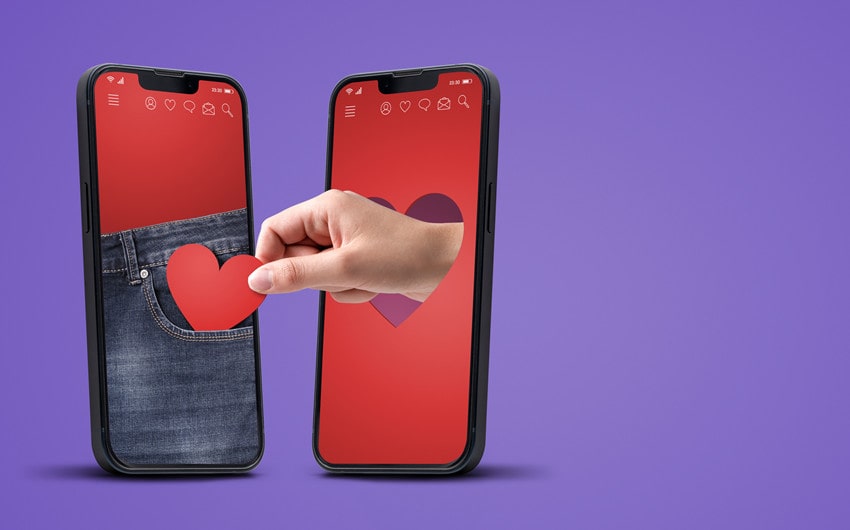The Trust Gap Between Niche Dating Websites and Mainstream Platforms
The online dating industry has revolutionized how people connect, offering platforms for virtually every preference, demographic, and lifestyle. Yet, despite the proliferation of dating websites and apps, a significant trust gap persists—especially between niche dating websites and their mainstream counterparts. What drives this disparity, and how can users navigate it to find genuine connections? Let’s explore.
Mainstream Platforms: The Broad Appeal
Mainstream dating platforms like Tinder, Bumble, and OkCupid dominate the online dating landscape, boasting millions of users worldwide. These platforms rely on their wide reach and user-friendly interfaces to attract a diverse audience. For many, the appeal lies in the convenience and sheer volume of potential matches. However, this broad scope can also create challenges. Users often report feeling overwhelmed by the sheer number of options or encountering profiles that lack authenticity.
Additionally, the algorithms on mainstream platforms are designed to prioritize engagement—keeping users swiping rather than facilitating meaningful connections. While these apps offer some degree of customization, their generic approach can sometimes fail to meet the specific needs of certain demographics. This is where niche dating websites step in.
The Rise of Niche Dating Websites
In response to the limitations of mainstream platforms, niche dating websites have carved out a space for themselves by catering to specific communities and interests. These platforms, such as the Go Chatty website (designed for those over 40), FarmersOnly (for rural singles), and JDate (for Jewish singles), offer a tailored experience that resonates with their target audience.
Niche websites excel in fostering a sense of community and shared values, which can lead to deeper connections. For example, Go Chatty emphasizes inclusivity and flexibility, catering to individuals who may feel underserved by platforms geared primarily toward younger users. By focusing on shared life experiences and mutual understanding, Go Chatty has become a popular choice for older adults seeking meaningful relationships.
Other niche platforms, like Christian Mingle, BlackPeopleMeet, or Veggly (for vegans), further demonstrate the growing demand for specialized spaces where users can connect without filtering through endless profiles that don’t match their values or lifestyles. However, despite their appeal, niche dating websites often face unique challenges that contribute to the trust gap.
The Trust Gap: Perception vs. Reality
Trust is a cornerstone of successful online dating, yet both niche and mainstream platforms struggle with it. For mainstream platforms, the issues often revolve around scale. The larger the user base, the harder it is to weed out fake profiles, scammers, or users with ulterior motives. Reports of catfishing, ghosting, and superficial interactions are common complaints.
On the other hand, niche dating websites face skepticism due to their specialized nature. Potential users may wonder: Are there enough active members to justify joining? Is this platform legitimate, or is it simply capitalizing on my specific needs? These concerns are not unfounded, as smaller platforms often lack the resources to invest in robust safety measures or advanced matching algorithms.
However, some niche websites actively address these concerns. Platforms like Go Chatty and EliteSingles focus on creating safe, user-friendly environments by implementing thorough verification processes and prioritizing privacy. This builds trust and encourages meaningful engagement.
Bridging the Trust Gap
So how can users decide whether a niche or mainstream platform is right for them? The key lies in understanding personal goals and the platform’s offerings. For those seeking broad exposure and casual interactions, mainstream platforms like Match.com or Hinge may be ideal. However, users with specific needs—whether it’s dating within their faith, lifestyle, or age group—might find niche platforms more fulfilling.
To bridge the trust gap, both users and platforms must take proactive steps. Users should thoroughly research platforms before joining, paying attention to reviews, safety features, and user demographics. For example, platforms like eHarmony emphasize compatibility-based matching, while niche platforms like OurTime cater specifically to older adults, offering a more curated experience.
Platforms, in turn, must prioritize transparency and user safety. Verification tools, clear communication about algorithms, and active moderation can go a long way in establishing credibility. Niche platforms like Go Chatty, by catering to older adults rather than just teens, set an example by balancing inclusivity with targeted services.
A Matter of Personal Choice
Ultimately, the choice between a niche dating website and a mainstream platform comes down to individual preferences and priorities. Both options have their merits and challenges, but understanding what you’re looking for can help navigate the trust gap. Whether it’s the wide reach of Tinder or the focused community of Go Chatty, online dating offers possibilities for everyone—as long as you approach it with clarity and caution.
As the online dating world continues to evolve, the trust gap may narrow. For now, it’s up to users and platforms alike to foster genuine, secure connections in a digital landscape filled with opportunity.







